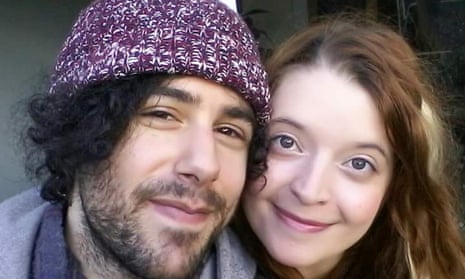A potential loophole in Britain’s strict immigration laws has been exposed after the Home office lost a case in Northern Ireland that hinged on the unique peace deal rights that allow citizens to identify as Irish and not British.
A Derry woman at the centre of the case has spoken of her joy after a Belfast court rejected the Home Office’s bid to appeal against a recent ruling that her American husband should be allowed to live in the UK without going through immigration procedures because she carried an Irish passport.
The Home Office has been told that it cannot appeal against the decision on the grounds that “no error in law” was made by the first-tier tribunal in Belfast.
“I feel elated and quite vindicated,” said de Souza.
The extraordinary immigration case hinged on the 1998 Good Friday agreement, which allows citizens to be identified as Irish, British or both and could have implications for any Irish passport holder married to an non-EU citizen, lawyers say.
Emma de Souza found herself at the centre of a legal battle after her application in 2015 for a residence card for her US-born husband, Jake de Souza, was rejected.
The Home Office initially rejected his application on the grounds that his wife was British, even though she never carried a British passport.
They said as she was born in Northern Ireland, under the British Nationality Act 1981 she was automatically deemed British and would have to apply through the normal routes for third country citizens. The Home Office told Mr De Souza the only way they could deal with his case was for his wife to “renounce her status as a British citizen”.
De Souza challenged that decision on the grounds that his wife had the right to be treated as an Irish citizen under the Good Friday agreement and was therefore an EU citizen exercising her freedom of movement rights.
The first-tier tribunal ruled in his favour.
“Under the terms of the Good Friday Agreement, people of Northern Ireland are in a unique position within the United Kingdom. The British and Irish governments recognised the birthright of all the people of Northern Ireland to identify themselves as Irish or British, or both,” said Judge Gillespie in his conclusion at the tribunal.
“Initially I had a lot of people I know say, ‘but the Home Office is right, you are British, just sign the form to denounce being British and make the application,’” said Ms De Souza.
“But I feel very strongly that I am Irish. I grew up in the Troubles and as a child I experienced the sectarian violence and then to be told that you can’t identify as Irish? I felt like even though the Good Friday Agreement upholds my rights, I felt I was being classed as a lesser identity,” she said.
“I wanted to take a stand not just for me, but for others,” added De Souza.
The Home Office appealed against the tribunal’s decision but was told this week that as there was “no error in law” it could not do so in that court.
However it has the right to go direct to the higher court, the upper tribunal to argue that an important point in law needs to be tested.
A spokesman for the Home Office said it was examining the ruling and considering whether to appeal.
